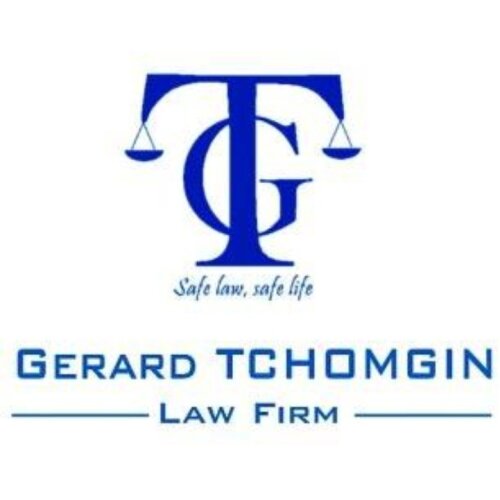Best Environmental Law & Compliance Lawyers in Yaoundé
Share your needs with us, get contacted by law firms.
Free. Takes 2 min.
List of the best lawyers in Yaoundé, Cameroon
About Environment Law in Yaoundé, Cameroon
Environmental law in Yaoundé, Cameroon, primarily focuses on the conservation and management of the country's natural resources and the mitigation of the environmental impacts of human activity. Key facets of Cameroonian environmental law include regulations on waste management, air and water quality, biodiversity conservation and land use. Legislation is guided by the Ministry of Environment, Nature Protection and Sustainable Development along with other regulatory bodies to ensure environmental protection and sustainability.
Why You May Need a Lawyer
Legal assistance can be critical if you, your business, or your organization is facing environmental regulation compliance issues, or if you are seeking redress for environment-related damages such as land degradation or pollution. Lawyers can provide expert advice on waste management regulations, land use disputes, environmental impact assessments, and biodiversity conservation issues. Individuals may also require legal representation when participating in public hearing processes about local environmental projects or developments.
Local Laws Overview
The Cameroonian Law No. 96/12 of 5 August 1996, along with other complementary regulations, serve as the primary legal framework for environmental protection in Yaoundé. These laws cover a broad range of issues, including waste management, biodiversity conservation, air and water pollution, and environmental impact assessments. Of particular importance is the requirement for an environmental impact statement to be conducted prior to any major development projects. Strict regulations also exist on the disposal of hazardous waste materials, the protection of endangered species, and the preservation of natural resources.
Frequently Asked Questions
What are the penalties for non-compliance with environmental regulations?
Penalties for violations of environmental regulations in Cameroon can range from fines to imprisonment, depending on the severity and recidivism of the offense.
What are my rights if my property has been damaged by pollution?
If your property has been damaged by pollution, you have the right to seek legal remedy through the Cameroonian legal system, often involving monetary compensation for the damage.
Can I challenge an environmental impact assessment that I believe to be faulty?
Yes, individuals or communities can lodge challenges to environmental impact assessments they believe to be inaccurate or incomplete. Legal representation is vital in these instances.
What steps are involved in an environmental lawsuit?
An environmental lawsuit generally involves filing a complaint, gathering evidence, presenting the case in court, and possibly moving through appeals processes. The details and complexities involved make it advisable to hire a lawyer.
Are there laws protecting biodiversity in Cameroon?
Yes, Cameroon has laws aimed at the preservation of biodiversity and the protection of endangered species and their habitats.
Additional Resources
The Ministry of Environment, Nature Protection and Sustainable Development provides extensive information on environmental guidelines and laws in Cameroon. The National Institute of Cartography may also provide useful maps and information about land use and biodiversity.
Next Steps
If you find yourself in need of legal assistance related to environmental law in Yaoundé, the first step is to consult with an attorney specializing in this field. They can provide informed advice, assist in navigating the legal landscape, and help ensure compliance with all relevant regulations.
Lawzana helps you find the best lawyers and law firms in Yaoundé through a curated and pre-screened list of qualified legal professionals. Our platform offers rankings and detailed profiles of attorneys and law firms, allowing you to compare based on practice areas, including Environmental Law & Compliance, experience, and client feedback.
Each profile includes a description of the firm's areas of practice, client reviews, team members and partners, year of establishment, spoken languages, office locations, contact information, social media presence, and any published articles or resources. Most firms on our platform speak English and are experienced in both local and international legal matters.
Get a quote from top-rated law firms in Yaoundé, Cameroon — quickly, securely, and without unnecessary hassle.
Disclaimer:
The information provided on this page is for general informational purposes only and does not constitute legal advice. While we strive to ensure the accuracy and relevance of the content, legal information may change over time, and interpretations of the law can vary. You should always consult with a qualified legal professional for advice specific to your situation.
We disclaim all liability for actions taken or not taken based on the content of this page. If you believe any information is incorrect or outdated, please contact us, and we will review and update it where appropriate.










